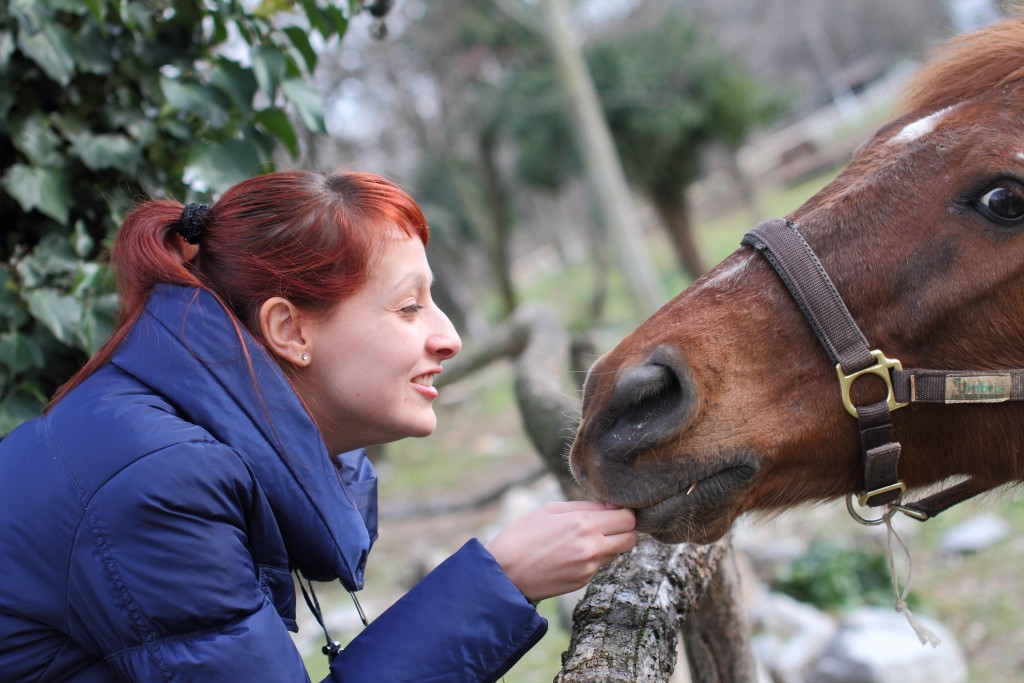Horse Training Tips
Tough Love: Are You Loving Your Horse to Death?
‘Tis the season of Cupid and love, and who doesn’t love their horse? In fact, some of you have told me that you love your horse more than your significant other. (Don’t worry, I won’t tell.) While I have no qualms with you loving your horse more than your significant other, some of you are loving your horses so much that you may be loving them to death. Literally.
Here is a direct quote from a Facebook post from someone who I know is not alone in her affliction.
“I wish I could give up my crazy need to give grain two times a day also, but food is love for me.”
This statement suggests to me that this owner knows that her horse doesn’t need the grain, but she gives it anyway because it makes her feel good.
At the start of a consultation, I am commonly given a list of things that a client feeds his or her horse, which often includes several forms of treats, or a random pound of some feed or another. Often it is clear the person is embarrassed as they give me their laundry lists of foods. When I ask the purpose for the items, the reply is commonly along the lines of, “Well, I just like to give him a treat,” or, “I feel bad if I put him away without giving him something.” Notice that that these responses are about the owner, not the horse.
With that sideways look horses give us, those pricked ears and bright eyes are enough to instill guilt in anyone. I get it! But the problem is that when you give a treat or some feed out of guilt, it likely is not a need for your horse.
A few years ago when I became a parent, I read an article about how to know if you are spoiling your child. The author offered a very simple check. If you are purchasing your child a gift from a place of love, then you are not spoiling the horse with that gift. However, if you purchase the gift from a place of guilt, then you may be spoiling your horse. I have used this reality check multiple times over the years as I’ve reached for an item on the store shelf, and I always ask myself where the urge to purchase comes from. It is interesting to start noticing when it is motivated out of love and when it comes from guilt.
Does it really hurt your horse if you feed him that treat because you feel guilty that he has to spend his days in a stall instead of a pasture, or whatever your guilty reason is? That depends. You may end up with a horse or pony that develops a nasty habit of nipping or mugging you for treats, which becomes a safety issue. When we are driven to treat our horses from a place of guilt it is hard to stand back and be objective about their needs.
Just like with humans, every unnecessary calorie consumed will be stored for later as fat. When you are unable to stand back and objectively assess your horse, you may one day look up and realize that he has gained a whole lot more weight than you realized. This is where the real issue of showing your love to your horse through food can become a life or death situation.
We used to think that body fat was a benign, if not unsightly, thing and yet now we know that it is so much more than that. Body fat is actually a metabolically active organ that can cause inflammation in the body. The inflammatory cytokines that are released by fat tissue interfere with glucose uptake, promoting insulin resistance. Horses with insulin resistance are at greater risk of developing laminitis, a dangerous disease that affects the feet of hooved animals, which can be a death sentence for your horse.
We as horse owners have become accustomed to overweight horses being the norm, so much so that people condemn owners of fit performance horses as being underfed and abused. However, being overweight is far more likely to be a death sentence than being athletically lean and fit. We need to adjust what we see as being an ideal weight and see it for what it often is, overweight and at risk of metabolic disorders.
So this Valentine’s Day, if you love your horse – I know you do – step back and take an objective look at body condition. Pick up a copy of the Henneke Body Condition Scoring System and put your hand on your horse and assess its condition. Then the next time he looks at you with those doughy eyes or you go to put him away after a ride, and you reach for that treat or random pound of senior feed, ask yourself how much you love him and whether you might just be killing him with kindness. If the answer is yes, leave out the feed, give him a good scratch in his favorite tickle spot, a pat, and walk away.
Sometimes tough love is the best kind of love you can give.

